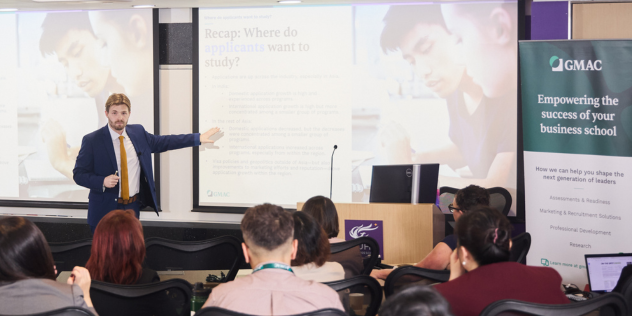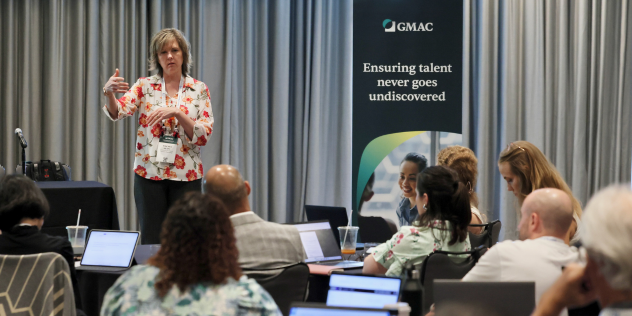What factors defined graduate management education (GME) in 2025, and how will they shape your decision-making in 2026?
2025’s Top 10 Trends in Graduate Business School Research
Topics: Recruitment & Marketing, Research Insights, graduate management education, GME, MBA, candidate insights, candidate research, survey, research report
Top 5 Ways to Leverage Your Location to Strengthen Graduate Admissions: Lessons from Dallas
As graduate admissions professionals, the story we tell about our graduate business school must extend beyond faculty and curriculum.
Topics: Recruitment & Marketing, Employment Outlook, Process Tips & Best Practices, MBA admissions, Business school application, graduate management education, GME, MBA
4 Reasons Why Business School Applications Rose as Visa Policies Changed
According to GMAC’s annual Application Trends Survey, total applications to graduate management education (GME) programs rose seven percent in 2025, despite reported concerns with economic and political volatility.
Topics: Recruitment & Marketing, Research Insights, graduate management education, GME, MBA, candidate insights, candidate research, survey, research report
How business schools can help Chinese candidates and returnees compete and win
In recent years, China has undergone a remarkable transformation in the global talent landscape. Once the world’s largest exporter of international students, China is now rapidly becoming the leading country for talent returning home.
Topics: Recruitment & Marketing, Research Insights, graduate management education, GME, MBA, candidate insights, candidate research, survey, research report
6 Back-to-School Tips and Resources for Starting the Year off Right
As students return to classrooms, GMAC provides resources for business school practitioners and administrators to sharpen their strategies, discover new insights, and identify new solutions that refine their craft.
Topics: Recruitment & Marketing, Research Insights, graduate management education, GME, MBA, candidate insights, candidate research, survey, research report
3 Facts Reveal Why Employers Are Still Confident in Business School
According to GMAC’s annual Corporate Recruiters Survey, 99 percent of employers express some level of confidence in business school’s ability to prepare graduates to be successful in their organizations—favorability that is consistent across regions and industries.
Topics: Recruitment & Marketing, Research Insights, graduate management education, GME, MBA, candidate insights, candidate research, survey, research report
Why AI and ROI Drive Interest in Graduate Business School
Based on results from nearly 5,000 candidates from almost 150 countries, the latest GMAC Prospective Students Survey offers new insights into the mindset of graduate management education (GME) candidates.
Topics: Recruitment & Marketing, Research Insights, graduate management education, GME, MBA, candidate insights, candidate research, survey, research report
Fewer International Business School Candidates Are Neutral About the U.S. Election Outcome
More international graduate management education (GME) candidates say the outcome of the U.S. presidential election will impact their decision to study in the United States now that the election has been decided, and President Donald J. Trump has taken office.
Topics: Recruitment & Marketing, Research Insights, graduate management education, GME, MBA, candidate insights, candidate research, survey, research report
6 Ways To Boost Your Professional Development in 2025 With GMAC Events
There is significant value in attending GMAC's Conferences & Events, including providing immediate ROI to you on the work that you do every day.
Topics: Recruitment & Marketing, Research Insights, GMAC Events, Training Materials, recruiting, marketing, admissions, events, graduate management education, GME, MBA
5 Data-Backed Actions To Improve How You Recruit Women in Business School
For International Women's Day 2025, GMAC has identified five ways that business schools can recruit women to their programs by focusing on what matters most to them as they pursue higher education.
Topics: Recruitment & Marketing, Research Insights, graduate management education, GME, MBA, candidate insights, candidate research, survey, research report









